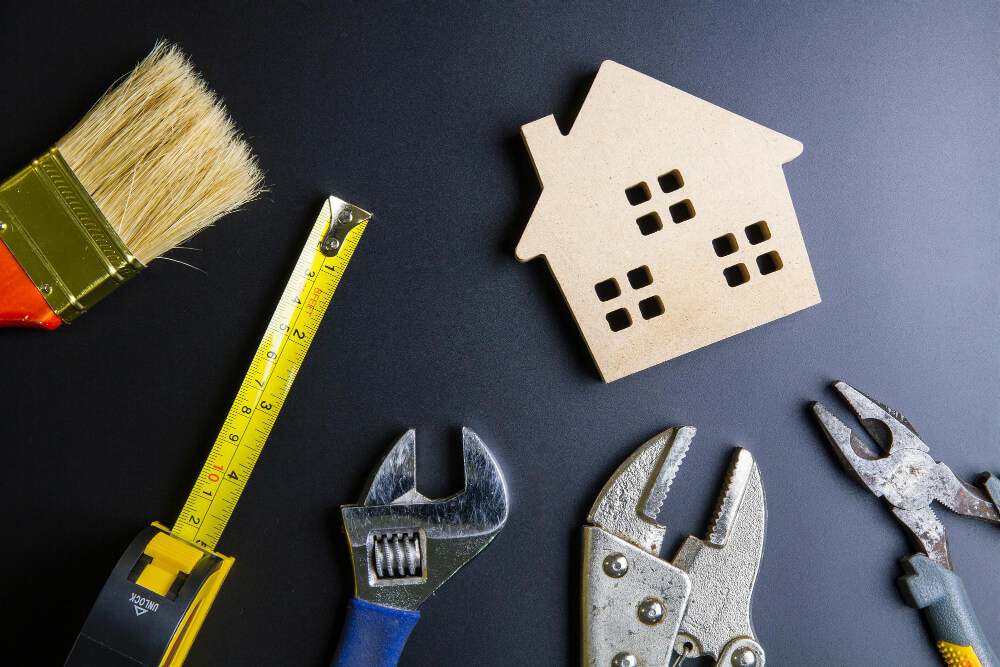Things you should know about an HVAC system
Updated Sat, Jul 12, 2025 - 5 min read
Top blog articles
Welcome to your friendly guide on the most important things to know about HVAC systems! Whether you’re a homeowner curious about how heating, ventilation, and air conditioning work together to keep your space comfortable or are in need of a major HVAC replacement or repair, you’re in the right place.
Let’s discover how the HVAC system works, the importance of regular maintenance, and how you can enjoy cool air and improved indoor air quality all year round.
What Is an HVAC System?
HVAC stands for heating, ventilation, and air conditioning. It’s the all-in-one solution that keeps your home cozy in winter, cool in summer, and the air you breathe fresh and clean. But how does an HVAC unit actually work?
An HVAC system works by cycling air through a network of ducts and vents, using a combination of heating and cooling elements to maintain your desired temperature.
The ventilation system is crucial—it removes stale air and brings in fresh outdoor air, helping to reduce indoor pollutants and humidity.
Modern heating, ventilation, and air conditioning systems are designed for energy efficiency, making them better for your wallet and the environment.
What Are the Types of HVAC Systems?
Choosing the right HVAC system can feel overwhelming, but knowing the basics helps you make an informed decision. Here are the most common types of HVAC systems you’ll encounter in 2025:Type of System Description Best For Split Systems Separate indoor unit (evaporator/furnace) and outdoor unit (condenser) Most homes, easy to maintain Hybrid Split Systems Uses a heat pump and a backup furnace for optimal energy efficiency Homes in variable climates Ductless Mini-Splits No ductwork, individual units for each room Homes without ducts, zoned comfort Packaged Systems All-in-one unit, usually installed outdoors Small homes, limited indoor space Geothermal Systems Uses underground loops for heating/cooling Eco-conscious homes, long-term savings
Keep in mind that each system mentioned above has unique benefits, from delivering cool air efficiently to offering advanced control over your heating and cooling systems. Understanding these options helps you pick the best fit for your space and budget.
What Is the Role of Regular HVAC Maintenance?

Regular maintenance is the secret sauce to a long-lasting, efficient HVAC system. Here’s why you shouldn’t skip it:
- HVAC maintenance keeps your system running smoothly, reducing the risk of unexpected breakdowns and expensive repairs.
- Change your air filters regularly—clogged filters make your air conditioner and furnace work harder, driving up energy consumption and energy bills.
- Keep vents and registers clean and clear, and inspect the area around your outdoor unit for debris.
- Schedule professional tune-ups with a certified HVAC technician at least twice a year—once before cooling season and once before heating season.
- Inspect and seal ductwork to prevent leaks, which can waste energy and compromise comfort.
- Don’t forget about your thermostat! Upgrading to a smart thermostat can make a big difference in energy efficiency and comfort.
Staying on top of maintenance not only extends the life of your HVAC unit but also ensures you’re breathing cleaner air and saving money in the long run.
HVAC System’s Role in Improving Indoor Air Quality
Did you know your HVAC system is a major player in improved indoor air quality? Here’s how:
- Advanced filtration systems, such as HEPA filters, capture dust, allergens, and even microbes, keeping your air cleaner.
- Ventilation and air conditioning systems help control humidity, which prevents mold and dust mites from thriving.
- Newer systems may include UV-C light technology to neutralize bacteria and viruses, further enhancing air quality.
- Regular duct cleaning and timely filter replacements are key to preventing the circulation of pollutants in your home.
- A well-maintained ventilation system ensures a steady flow of fresh air, reducing the buildup of indoor contaminants.
Prioritizing indoor air quality means healthier living for you and your family—fewer allergies, less dust, and a fresher home environment.
HVAC System’s Role in Energy Efficiency and Cost Savings
Everyone loves saving money, and your HVAC system can help you do just that! Here’s how to maximize energy efficiency and lower your energy bills:
- New regulations in 2025 require higher SEER (Seasonal Energy Efficiency Ratio) ratings for air conditioners and heat pumps, meaning today’s systems are more efficient than ever.
- Heat pumps and split systems are designed to use less energy while providing the same level of comfort.
- Smart thermostats and zoning systems allow you to heat or cool only the rooms you use, reducing wasted energy.
- Keep an eye on your system’s age—older units are less efficient and may cost you more in the long run. Consider upgrading if your system is over 10-15 years old.
- Regular maintenance, such as cleaning coils and checking refrigerant levels, also plays a big role in keeping your system efficient.
By focusing on energy efficiency, you’ll not only help the planet but also keep more money in your pocket every month.
When to Call an HVAC Technician

Sometimes, DIY just doesn’t cut it. Here’s when you should call a pro:
- If your HVAC unit is making strange noises, not delivering cool air, or your energy bills suddenly spike, it’s time for a professional checkup.
- Annual inspections by a certified HVAC technician can catch small issues before they become big problems.
- For major repairs, installations, or upgrades, always trust a qualified expert to ensure safety and optimal performance.
Don’t wait for a breakdown—regular checkups keep your system running strong and your home comfortable year-round.
Final Thoughts
Understanding how your HVAC system works, the importance of regular maintenance, and the latest trends in energy efficiency and indoor air quality can make a world of difference in your comfort and savings. Whether you’re considering a new system, looking to improve your current setup, or just want to breathe easier at home, these tips will help you get the most from your heating, ventilation, and air conditioning system.
Stay comfortable, save energy, and enjoy cleaner air—your HVAC system has you covered!









